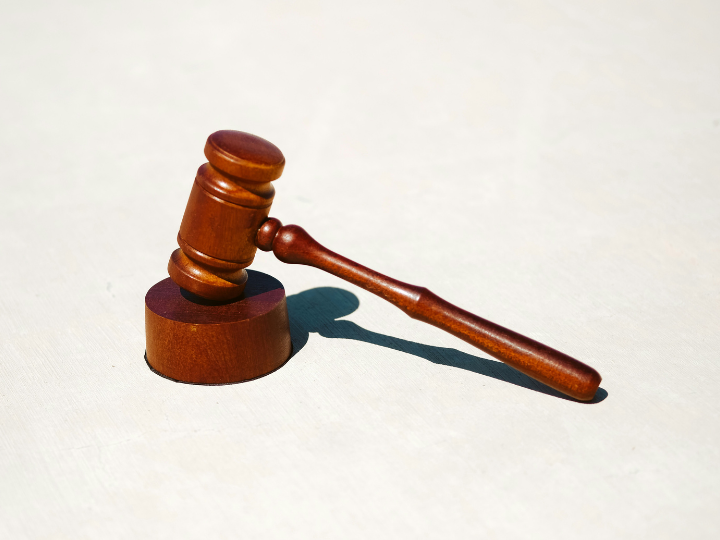by Max Griera
The European Parliament President, Roberta Metsola, confirmed on Thursday (14 March) that she had instructed the Parliament’s legal services to file a lawsuit against the European Commission over its decision to unfreeze €10.2 billion in funds for Hungary, but a rocky road lies ahead as Parliament now needs to build a solid case.
The funds are part of a €22 billion EU cohesion fund withheld in December 2022 over judicial independence and fundamental rights concerns, the respect of which is a condition of disbursement.
The Commission released the funding for Hungary on the eve of the December EU summit, leading to concerns it was used to get Hungarian Prime Minister Viktor Orban to unblock opposition to opening Ukraine accession talks and a €50 billion aid package.
The lawsuit will be heard by the Court of Justice of the European Union (CJEU) and will set a precedent regarding the conditionality of withholding funds to protect the rule of law and fundamental rights in EU countries.
“A ruling like this will bring more structure and order in how the Commission or a special agency goes about rule of law issues,” vice-chair of Parliament’s legal affairs committee, Sergey Lagodinsky, told Euractiv, adding it will prompt the Court to develop “a clearer and cleaner” jurisprudence on the EU/s democratic scrutiny.
Meanwhile, Miguel Maduro, Former Advocate General of the CJEU and EU law professor, told Euractiv that the implications of the final ruling—which could take years—may go beyond Hungary’s case.
Stripping democratic oversight from the Commission?
The case could spotlight the Commission’s vulnerability to ‘blackmail’ by member states, triggering political discussions on the reform of EU fundamental rights and rule of law assessments.
“A question might need to be raised whether such powers [rule of law, fundamental rights assessments] should be either entrusted to a body within the Commission that is fully insulated from other political considerations or be transferred to a separate institution only entrusted with enforcement and monitoring functions,” Maduro said.
He said the Commission’s involvement in multiple legislative files and negotiations with EU countries makes it particularly vulnerable and suggested the EU’s Fundamental Rights Agency (FRA) could take over the job.
MEP Lagodinsky also backed shifting assessment duties to an independent agency, taking the matter “out of the political realm.”
The ideal outcome of the case, Lagodinsky said, would be for the court to clarify that there was a “manifest error” in using political discretion to unblock funds, which, according to him, could prevent countries from applying pressure in the future.
The Parliament’s possible legal arguments
Parliament will have to prove that the Commission’s decision was outside the scope of its margins of discretion, as “in general terms, the Court tends to give a certain degree of discretion to the Commission in exercising its powers of assessing the situation,” Maduro said.
Similarly, Parliament Vice-President Katarina Barley recently expressed that the lawsuit’s prospects in court are “very weak”.
Still, Maduro said that the Parliament can build up a strong case by highlighting the Commission/s contradictions in freezing funds.
While the Commission has released part of the EU funds, arguing that the country has fulfilled the enabling condition on the EU Charter of Fundamental Rights by addressing deficiencies in judicial independence, the EU’s executive is still withholding €10 billion in cohesion funds, €6.3 billion of which are frozen under the rule of law conditionality mechanism.
“It seems difficult to argue that what leads to a violation of a rule of law conditionality is not at the same time susceptible of amounting to a violation of the Charter of Fundamental Rights conditionality,” Maduro said.
“We’ll have to see what evidence the Parliament presents and the extent to which the Parliament can make a case that the Commission has ignored that there is still a variety of elements on which Hungary has not complied with its obligations,” he added.
Uncertain path
In 2021, MEP Lagodisky led a lawsuit against the Commission over a failure to trigger Hungary’s rule of law conditionality mechanism and freeze funds disbursement. However, the court did not issue a ruling as the lawsuit was withdrawn when the Commission complied with Parliament’s requests.
But this time, “we have to go for it all the way and see how the case develops,” Lagodinsky said, as the Parliament does not have facts such as correspondence between the Commission and Hungary as evidence.
“We don’t have enough facts to know and to be able to assess how the trajectory of the case will go,” he added.
Despite an uncertain path ahead, the lawsuit is also intended to send a political message to the Commission, forcing it to be more transparent on how it makes such decisions, as so far there has been little communication, MEP Adrian Vazquez Lazara, chair of the legal affairs committee, told Euractiv.
*first published in: Euractiv.com




 By: N. Peter Kramer
By: N. Peter Kramer

